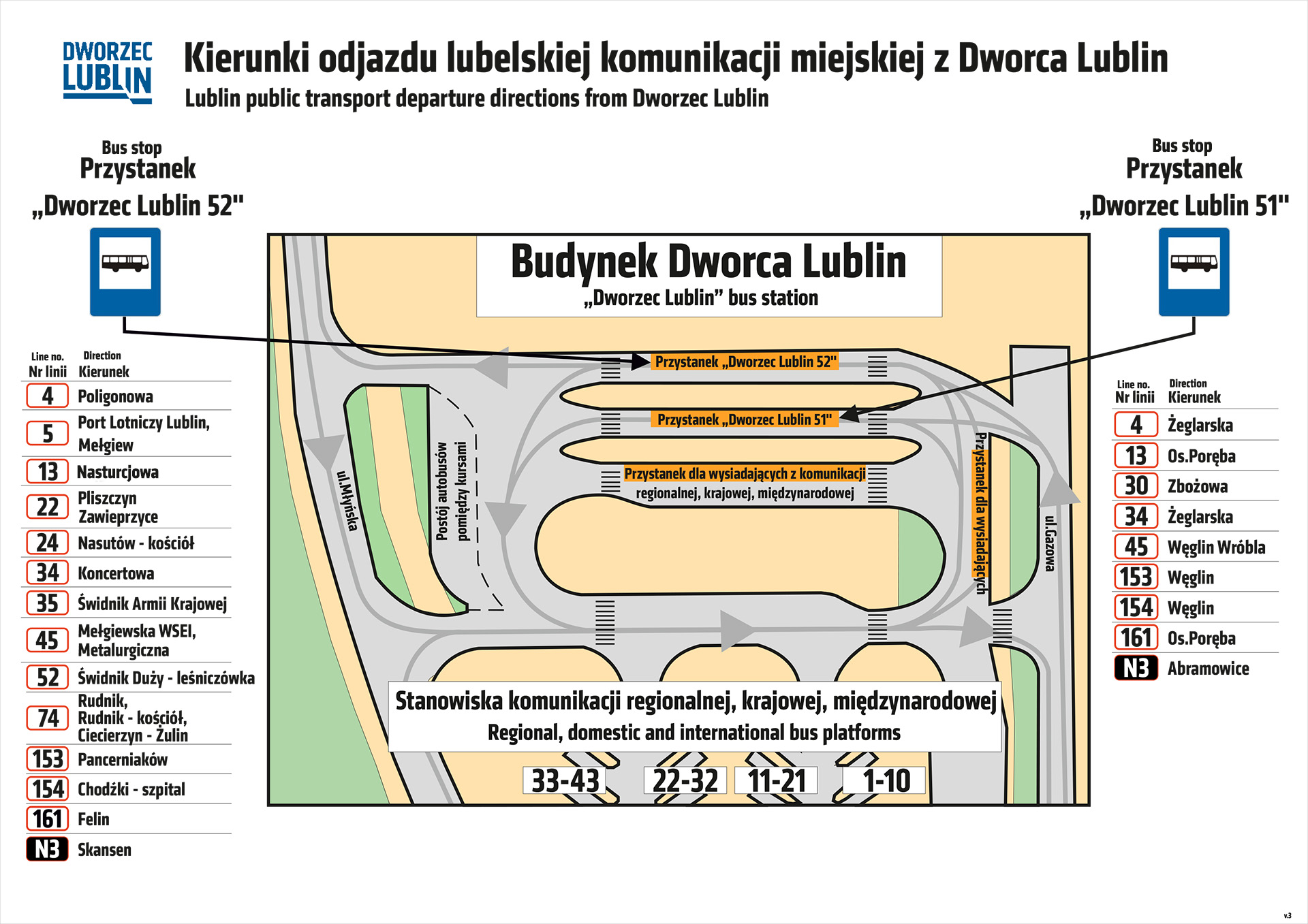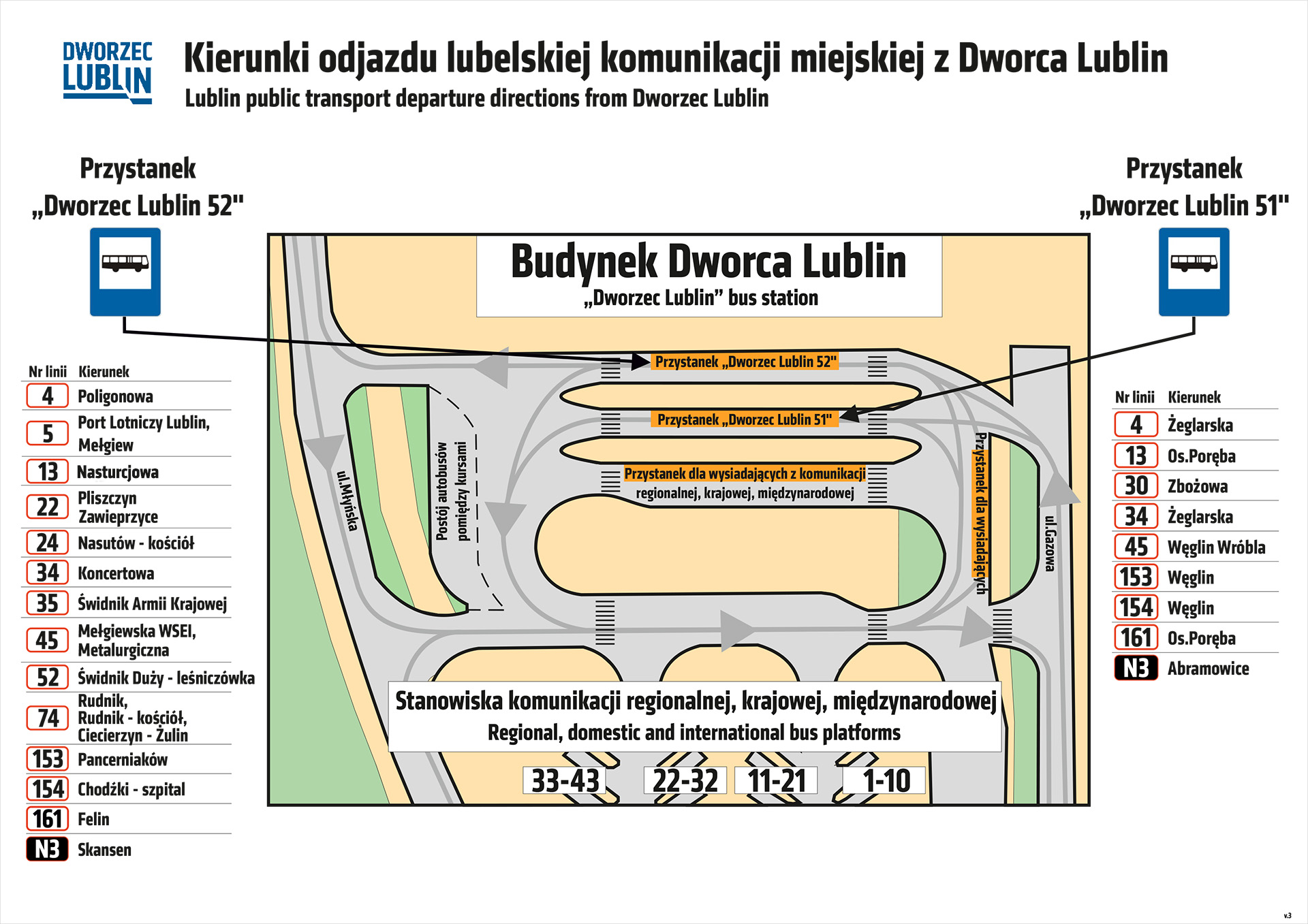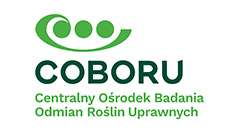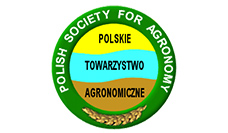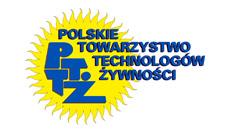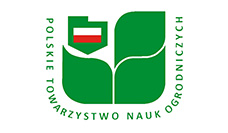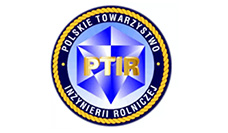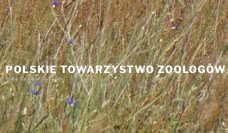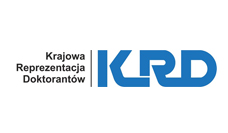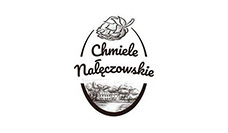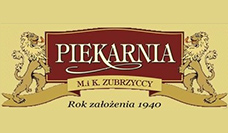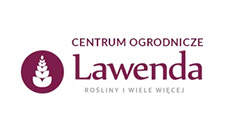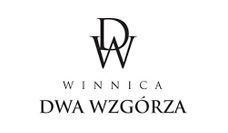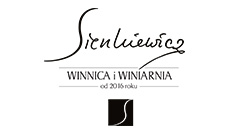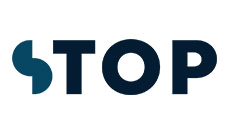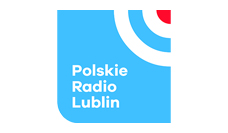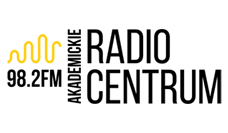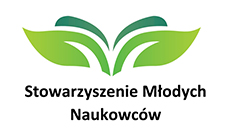

ENVIRONMENT-PLANT-ANIMAL-PRODUCT
5th International PhD Students’ Conference: Environment-Plant-Animal-Product
together with the
International Workshops at the University of Life Sciences in Lublin, Poland
22-24 April 2026
hybrid format
The University of Life Sciences in Lublin has the pleasure to invite you to the 5th International PhD Students’ Conference: Environment-Plant-Animal-Product together with the International Workshops at the University of Life Sciences in Lublin, Poland on 22-24 April, 2026 hybrid format.
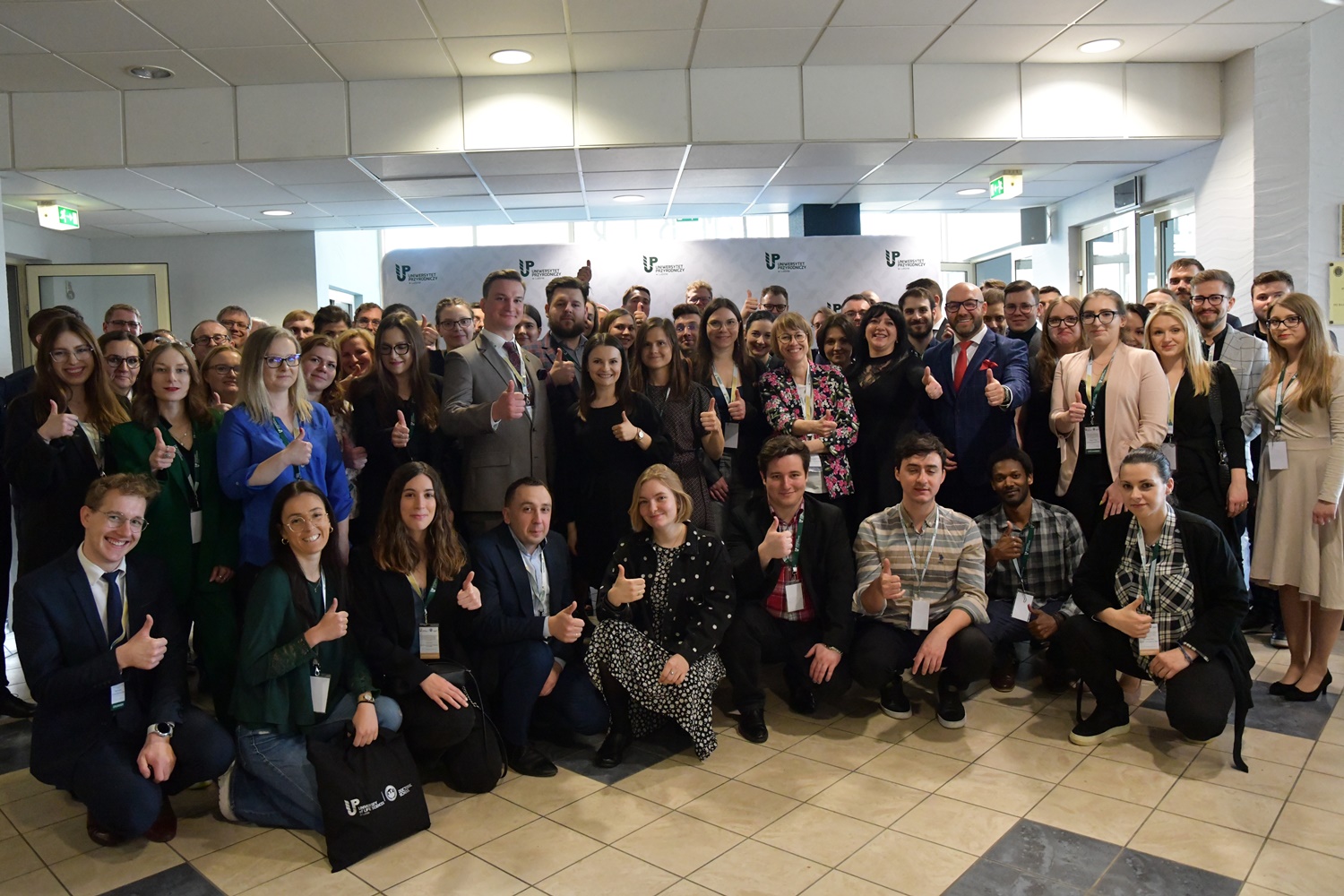 Photo from the 2nd International PhD Student’s Conference at the University of Life Sciences in Lublin, Poland: ENVIRONMENT- PLANT-ANIMAL-PRODUCT (ICDSUPL), 2023; photo: Alicja Jaroszewska
Photo from the 2nd International PhD Student’s Conference at the University of Life Sciences in Lublin, Poland: ENVIRONMENT- PLANT-ANIMAL-PRODUCT (ICDSUPL), 2023; photo: Alicja Jaroszewska
The first day of the event (22th April 2024) – 5th International PhD Students’ Conference: Environment-Plant-Animal-Product (ICDSUPL) – will be held at the University of Life Sciences in Lublin and it will have a hybrid format. Stationary events will be held at the Congress Hall and Conferences Halls of the University of Life Sciences in Lublin, Akademicka 15, Lublin.
Conference sessions include: Food Quality; Animal Sciences; Plant Sciences; Environment; Technology; Health and Basic Sciences.
The second and the third days of the event (23-24th April 2026) – International Workshops supported by the STER NAWA project “Actions towards the internationalization of the Doctoral School of the University of Life Sciences in Lublin (I-SDUPL)”
– will be held in Lublin region only in stationary format.
Workshops on soft skills development include aspects such as: good practices in adult education abroad, methods of activating and supporting learning, education in a multicultural environment.
The Event is an excellent opportunity to present result of latest research, exchange scientific ideas, share research experiences, as well as to establish interdisciplinary cooperation. We believe that the Event will contribute to the creation of inter-university research teams, both national and international, and the integration of the doctoral students’ community. The conference program includes plenary speeches by invited professors, oral and poster presentations of PhD students from Poland and foreign research centres.
Rector
of the University of Life Sciences in Lublin
prof. dr hab. Krzysztof Kowalczyk
♦
Vice-Rector
for Science and International Cooperation
of the University of Life Sciences in Lublin
prof. dr hab. Bartosz Sołowiej
♦
Director of Doctoral School
of the University of Life Sciences in Lublin
prof. dr hab. Andrzej Jakubczak
♦
Doctoral Students Council
of the University of Life Sciences in Lublin
We cordially invite you to participate in the Event!
Organizing committee

Scientific Committee
prof. dr hab. Andrzej Jakubczak; University of Life Sciences in Lublin, Poland – Head of the Committee
prof. dr hab. Bartosz Sołowiej; University of Life Sciences in Lublin, Poland
prof. dr hab. Andrzej Marczuk; University of Life Sciences in Lublin, Poland
dr hab. Urszula Kosior-Korzecka, associate prof.; University of Life Sciences in Lublin, Poland
Prof. Tomasz N. Kołtunowicz, Ph.D. Eng.; Lublin University of Technology
Prof. Dr. Živilė Tarasevičienė; Vytautas Magnus University, Agriculture Academy, Kaunas Reg., Lithuania
Prof. Dr. Tibor Janda, DSc. HUN-REN Centre for Agricultural Research, Hungary
Prof. Joan García; Universitat Politècnica de Catalunya-BarcelonaTech, Spain
Prof. Anabela Cândida Ramalho Durão; Instituto Politécnico de Beja, Portugal
Prof. Jan Turan; University of Novi Sad, Faculty of Agriculture, Serbia
Prof. Dr. Paulius Matusevicius; Lithuanian University of Health Sciences, Lithuania
Prof. Oleg Melnyk; National University of Life Resources and Environmental Sciences of Ukraine, Kyiv, Ukraine
Prof. Pavol Findura; Slovak University of Agriculture in Nitra, Slovakia
Assoc. Prof. dr. Jurgita Dailidavičienė; Lithuanian University of Health Sciences, Lithuania
Dr hab. Viktor Korzun; Global Lead Scientific Affairs, KWS SAAT SE & Co. KGaA; Germany
Dr. Carsten Paul; Leibniz Centre for Agricultural Landscape Research Germany
Dr. Augusto Carlos Castro-Nunez; The International Center for Tropical Agriculture (CIAT) Cali, Colombia
Dr. Eduardo Ferreira; CESAM/DBio – Universidade de Aveiro, Laboratory of Wildlife Ecology and Conservation (WildEco)
Dr. João Carvalho;CESAM/DBio – Universidade de Aveiro Laboratory of Wildlife Ecology and Conservation (WildEco)
dr hab. Sylwia Andruszczak; associate prof.; University of Life Sciences in Lublin, Poland
prof. dr hab. Aneta Nowakiewicz; University of Life Sciences in Lublin, Poland
prof. dr hab. Brygida Ślaska; University of Life Sciences in Lublin, Poland
prof. dr hab. Dariusz Andrejko; University of Life Sciences in Lublin, Poland
prof. dr hab. Waldemar Gustaw; University of Life Sciences in Lublin, Poland
prof. dr hab. Krzysztof Jóźwiakowski; University of Life Sciences in Lublin, Poland
prof. dr hab. Tomasz Mieczan; University of Life Sciences in Lublin, Poland
prof. dr hab. Barbara Kołodziej; University of Life Sciences in Lublin, Poland
dr hab. Katarzyna Dzida, associate prof.; University of Life Sciences in Lublin, Poland
Prof. dr hab. Justyna Batkowska; University of Life Sciences in Lublin, Poland
Prof. dr hab. Sławomir Kocira; University of Life Sciences in Lublin
Prof. dr hab. Tomasz Oniszczuk; University of Life Sciences in Lublin, Poland
Prof. dr hab. Jacek Pranagal; University of Life Sciences in Lublin, Poland
dr hab. Sławomir Ligęza, associate prof.; University of Life Sciences in Lublin, Poland
dr hab. Katarzyna Tajchman, associate prof.; University of Life Sciences in Lublin, Poland
dr hab. Alina Kowalczyk-Juśko, associate prof.; University of Life Sciences in Lublin, Poland
dr hab. Beata Biernacka, associate prof.; University of Life Sciences in Lublin, Poland
dr hab. Agnieszka Starek-Wójcicka, associate prof.; University of Life Sciences in Lublin, Poland
dr hab. Marta Wójcik, associate prof.; University of Life Sciences in Lublin, Poland
dr hab. Maciej Combrzyński, associate prof.; University of Life Sciences in Lublin, Poland
dr hab. Arkadiusz Matwijczuk, associate prof.; University of Life Sciences in Lublin, Poland
dr hab. Monika Skowrońska, associate prof.; University of Life Sciences in Lublin, Poland
dr hab. Monika Sujka, associate prof.; University of Life Sciences in Lublin, Poland
dr hab. Przemysław Tkaczyk, associate prof.; University of Life Sciences in Lublin, Poland
dr hab. Mariola Bochniarz, associate prof.; University of Life Sciences in Lublin, Poland
PhD Joanna Sender; University of Life Sciences in Lublin, Poland
PhD Emilia Osmólska; University of Life Sciences in Lublin, Poland
PhD Anna Wirkijowska; University of Life Sciences in Lublin, Poland
PhD Wiktoria Janicka; University of Life Sciences in Lublin, Poland
PhD Kamila Janicka; University of Life Sciences in Lublin, Poland
PhD Jakub Soja; University of Life Sciences in Lublin, Poland
PhD Krzysztof Kowal; University of Life Sciences in Lublin, Poland
PhD Paulina Łysakowska; University of Life Sciences in Lublin, Poland
PhD Maria Stasińska-Jakubas; University of Life Sciences in Lublin, Poland
PhD Maciej Bryś; University of Life Sciences in Lublin, Poland
PhD Patrycja Skwarek; University of Life Sciences in Lublin, Poland
Prof. Andrzej Jakubczak University of Life Sciences in Lublin – Head of the Committee
PhD Małgorzata Wysocka University of Life Sciences in Lublin – Vice-Head of the Committee – Vice-Head of the Committee
PhD Katarzyna Dziki-Michalska University of Life Sciences in Lublin – Secretary of the Event
MSc Anastasiya Ramankevich – Head of the Doctoral Students Council
dr hab. Beata Kołodziej, associate prof.
dr hab. Anna Kiełtyka-Dadasiewicz, associate prof.
PhD Monika Jaroszuk-Sierocińska
PhD Kamil Drabik
MA Agnieszka Wasilak
MA Karolina Kwapisz
MA Anna Buchlińska-Brzozowska
MA Ewelina Knosala
MSc Michał Arciszewski, PhD student
MSc Wiktoria Stoma, PhD student
MSc Joanna Stasiak, PhD student
MSc Karolina Wengerska, PhD student
MSc Jan Sadurski, PhD student
MSc Aleksandra Garbacz, PhD student
MSc Kamila Kaszycka, PhD student
MSc Magdalena Moczulska, PhD student
MSc Karolina Sokal, PhD student
MSc Rafał Wnuczek, PhD student
MSc Jordan Wilk, PhD student
MSc Klaudia Rząd, PhD student
MSc Piotr Nawłatyna, PhD student
MSc Aleksandra Figura, PhD student
MSc Wojciech Ospałek, PhD student
MSc Gabriela Czarkowska, PhD student
MSc Weronika Grzelak, PhD student
MSc Adrian Stelmachowicz, PhD student
MSc Marta Wnęk, PhD student
MSc Katarzyna Michaś, PhD student
MSc Wiktoria Jędrys, PhD student
MSc Magdalena Borecka, PhD student
MSc Kaja Ziółkowska-Twarowska, PhD student
MSc Ewelina Krukow, PhD student
MSc Joanna Kowalik, PhD student
MSc Oliwia Brzezińska, PhD student
MSc Klaudia Kaliszyk, PhD student
MSc Maja Gonowska, PhD student
Environmental Sciences:
dr hab. Sławomir Ligęza, associate prof.
dr hab. Alina Kowalczyk-Juśko, associate prof.
PhD Jakub Soja
MSc Julia Wójcik-Madej
Plant Sciences:
dr hab. Małgorzata Halniarz, associate prof.
PhD Joanna Sender
PhD Maria Stasińska-Jakubas
MSc Wiktoria Jędrys, PhD student
Animal Sciences:
dr hab. Katarzyna Tajchman, associate prof.
dr hab. Mariola Bochniarz, associate prof.
PhD Krzysztof Kowal
MSc Figura Aleksandra, PhD studet
Technology:
dr hab. Beata Biernacka, associate prof.
dr hab. Maciej Combrzyński, associate prof.
PhD Emila Osmólska
MSc Karolina Sokal, PhD student
Food quality:
dr hab. Monika Sujka, associate prof.
PhD Anna Wirkijowska
PhD Patrycja Skwarek
MSc Magdalena Borecka, PhD student
Health and Basic Sciences:
dr hab. Marta Wójcik, associate prof.
dr hab. Arkadiusz Matwijczuk, associate prof.
PhD Maciej Bryś
MSc Aleksandra Garbacz, PhD student
Poster session
prof. dr hab. Jacek Pranagal
dr hab. Przemysław Tkaczyk, associate prof.
dr hab. Agnieszka Starek-Wójcicka, associate prof.
PhD Wiktoria Janicka
PhD Paulina Łysakowska

Rules for the preparation and presentation of the poster:
The poster should contain: the name and surname of the author/authors, title, name of the university, aim of the study, material and methods, results, and conclusions.
For online participants, the poster in PDF format should be sent by April 12th, 2026, to conference.doctoral@up.edu.pl. The presentation of the poster will take place only in the multimedia form.
For stationary participants, the poster should be printed vertically in A1 format (594 × 841 mm).
Guidelines for preparing an oral presentation
- The presentation should be prepared in English in PowerPoint. To ensure the best possible reception of the presentation, especially for people with disabilities, it is recommended to use a white background for the slides, with a predominantly black font, and to limit the use of motion animations.
- The organizer assumes that the oral presentation of the multi-authored abstract will be made by the first author. If the author’s team appoints an author other than the first one for the oral presentation, such information should be provided to the moderators before the start of the session.
- The time allocated for an oral presentation in a thematic session is 10 minutes

Absract template (.docx)
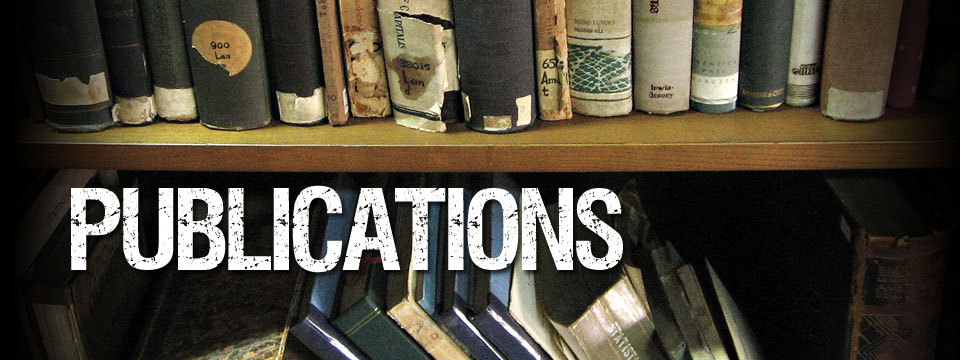
All abstracts will be published on-line on
conference-doctoral.up.lublin.pl
and all abstract will have DOI.
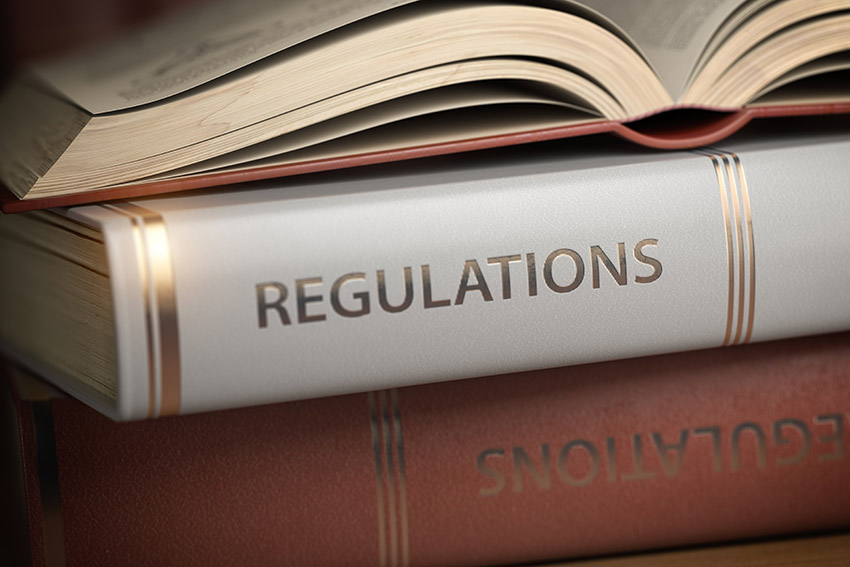
In English:
-
Directions to the conference for those arriving at the Lublin Główny Railway Station/Metropolitan Station Lublin
Getting to the conference from Lublin Main Railway Station (PKP Lublin Główny) or the Metropolitan Bus Station “Dworzec Lublin”
Conference address:
Congress Centre of the University of Life Sciences in Lublin
15 Akademicka Street
20-950 Lublin, PolandTaxis and ride-hailing apps:
- UBER (app): https://www.uber.com/global/pl/r/cities/lublin-lubelskie-pl/
- BOLT (app): https://bolt.eu/pl-pl/?utm_source=domain-redirect&utm_medium=m-bolt-eu
- FREENOW (app): https://www.free-now.com/pl/
- EKO TAXI LUBLIN
Tel. +48 81 744 22 22 https://lublin.ekotaxi.pl/kontakt - ALE TAXI LUBLIN
Tel. +48 81 511 11 11, +48 81 745 01 91 http://www.aletaxi.pl/kontakt
Public transport:
- Bus lines: 30, 153, 154 (departure from the stop Dworzec Lublin 51)
From PKP Lublin Main Railway Station, walk for about 3 minutes (180 m) to the bus stop Dworzec Lublin 51, located next to the main building of the Metropolitan Bus Station “Dworzec Lublin”.
Take:
- Bus no. 30 (direction: Zbożowa), or
- Bus no. 153 or 154 (direction: Węglin).
Get off at Wiercieńskiego 01 stop (the 4th stop), located on Głęboka Street.
From the bus stop, it is about a 450 m walk (approx. 6 minutes) to the conference venue.Buses run approximately every 15–30 minutes.
Timetables for bus stop Dworzec Lublin 51:
- When planning your route using public transport, we recommend using the following app or website: https://jakdojade.pl
- Link to MPK Lublin timetables: https://zdtm.lublin.eu/
-
Access to the conference for those arriving at the Lublin Main Bus Station (PKS Lublin Główny)
Getting to the conference from Lublin Main Bus Station (PKS Lublin Główny)
Conference address:
Congress Centre of the University of Life Sciences in Lublin
15 Akademicka Street
20-950 Lublin, PolandTaxis and ride-hailing apps:
- UBER (app): https://www.uber.com/global/pl/r/cities/lublin-lubelskie-pl/
- BOLT (app): https://bolt.eu/pl-pl/?utm_source=domain-redirect&utm_medium=m-bolt-eu
- FREENOW (app): https://www.free-now.com/pl/
- EKO TAXI LUBLIN
Tel. +48 81 744 22 22 https://lublin.ekotaxi.pl/kontakt - ALE TAXI LUBLIN
Tel. +48 81 511 11 11, +48 81 745 01 91 http://www.aletaxi.pl/kontakt
Public transport:
Bus lines: 31, 150 (departure from the stop Muzeum Narodowe – Zamek 02)
From PKS Lublin Main Bus Station, walk approximately 100 m (1 minute) to the bus stop Muzeum Narodowe – Zamek 02 on Tysiąclecia Street. Take bus no. 150 or 31 (direction: Os. Poręba). Get off at UMCS 01 stop (the 5th stop). From the bus stop, it is about a 490 m walk (approx. 6 minutes) to the conference venue. Buses run approximately every 10 minutes.- When planning your route using public transport, we recommend using the following app or website: https://jakdojade.pl
- Link to MPK Lublin timetables: https://zdtm.lublin.eu/
-
Access to the conference for those arriving at the Lublin Airport
Getting to the conference from Lublin Airport
Conference address:
Congress Centre of the University of Life Sciences in Lublin
15 Akademicka Street
20-950 Lublin, PolandTaxis and ride-hailing apps:
- UBER (app): https://www.uber.com/global/pl/r/cities/lublin-lubelskie-pl/
- BOLT (app): https://bolt.eu/pl-pl/?utm_source=domain-redirect&utm_medium=m-bolt-eu
- FREENOW (app): https://www.free-now.com/pl/
- EKO TAXI LUBLIN
Tel. +48 81 744 22 22 https://lublin.ekotaxi.pl/kontakt - ALE TAXI LUBLIN
Tel. +48 81 511 11 11, +48 81 745 01 91 http://www.aletaxi.pl/kontakt
From Lublin Airport (1 Króla Jana III Sobieskiego Street, 21-040 Świdnik) to the University of Life Sciences in Lublin (15 Akademicka Street, 20-950 Lublin), you can reach the conference venue by train (the railway stop is located next to the airport terminal) or by public transport.
- Departure station: Lublin Airport – Arrival station: Lublin Główny
Train tickets can be purchased at: https://bilety.polregio.pl/
A timetable poster is available at: https://www.airport.lublin.pl/jak-trafic/pociagAfter arriving at Lublin Główny, you may use the public transport or car options described above
(Getting to the conference from Lublin Main Railway Station or from the Metropolitan Bus Station “Dworzec Lublin”).Public transport:
Bus line: 5 (departure from the stop Port Lotniczy Lublin – Arrivals 02)
Take bus no. 5 to Lublin Main Station, then transfer to bus line 30, 153, or 154
(the route is described above).- When planning your route using public transport, we recommend using the following app or website: https://jakdojade.pl
- Link to MPK Lublin timetables: https://zdtm.lublin.eu/
-
Accommodation
There are several accommodation options available near the conference venue, including student dormitories of the University of Life Sciences in Lublin (limited availability), as well as hotels, hostels, and apartments.
We recommend booking accommodation via the following websites or apps:
- https://www.booking.com
- https://noclegi.pl/lublin?search=Lublin()
- https://www.nocowanie.pl/noclegi/lublin/
- https://www.airbnb.pl/lublin-poland/stays
Accommodation facilities located near the University (with contact details):
- University of Life Sciences Dormitories (UP Lublin)
Student Housing Office
12 Langiewicza Street, 20-035 Lublin (Dormitory “Eskulap”)
Tel. +48 81 441 14 80 - Hotel “LOGOS” Lublin
4 Akademicka Street, 20-033 Lublin
Tel. +48 81 533 82 85, +48 81 533 82 86
E-mail: recepcja@hotellogos.lublin.pl - Mercure Lublin Centrum
12 Aleje Racławickie, 20-037 Lublin
Tel. +48 81 533 20 61
https://mercure-lublin-centrum-hotel.at-hotels.com/pl/#main - Holiday Inn Express Lublin
9 Spadochroniarzy Street, 20-043 Lublin
Tel. +48 81 561 62 00
E-mail: recepcja@hiexlublin.pl
https://www.hiexlublin.pl/pl/ - Hotel Campanile Lublin
14 Lubomelska Street, 20-067 Lublin
Tel. +48 81 531 84 00
https://www.campanile.com/pl/nasze-hotele/polska/hotele-lublin/ - Rodmos Hostel
8/4 3 Maja Street, Lublin
Tel. +48 81 532 03 51, Mobile: +48 693 040 001
E-mail: biuro@rodmos.pl
http://rodmos.pl/hostel/ - Hotel Victoria Lublin
58/60 Narutowicza Street, 20-016 Lublin
Tel. +48 81 532 70 11
E-mail: info@victorialublin.pl
https://victorialublin.pl/ - Hostel Orla – Orla 6
6 Orla Street, 20-022 Lublin
Tel. +48 883 993 999
http://www.hostelorla.pl - Apartamenty Wieniawa
20 Bartosza Głowackiego Street, 20-060 Lublin
Tel. +48 508 56 26 26
E-mail: info@apartamentywieniawa.pl
http://www.apartamentywieniawa.pl/
-
Dining
Catering
On the day of the conference, snacks during coffee breaks and lunch will be provided for participants.
List of nearby canteens and restaurants:
- “IMBIR” Bistro & Café
UP Congress Centre, 15 Akademicka Street, 20-950 Lublin
https://imbir-lublin.pl/bistro-imbir/#menu - Bazylia Restaurant (UMCS)
4A Maria Curie-Skłodowska Square, 20-031 Lublin
https://bazylialublin.eatbu.com/?lang=pl#times - MOJO Kuchnia & Przyjaciele
8 Idziego Radziszewskiego Street, 20-036 Lublin
https://mojolublin.pl/menu/ - Kulinarny KADR
2 Rektora Henryka Raabego Street, 20-400 Lublin - KUL Student Canteen
Located in the Seminary building (Konwikt Księży Studentów), opposite the Academic Church
7 Idziego Radziszewskiego Street, 20-039 Lublin, Poland
https://www.kul.pl/menu-stolowki-w-konwikcie,art_39611.html - “Trójka” – UMCS Academic Canteen
16 Langiewicza Street, 20-032 Lublin
- “IMBIR” Bistro & Café
In Polish:
-
Dojazd z Dworca PKP Lublin Główny lub Dworca Metropolitalnego „Dworzec Lublin”
Dojazd na konferencję z Dworca PKP Lublin Główny lub z Dworca Metropolitalnego ,,Dworzec Lublin’’
Adres konferencji:
Centrum Kongresowe Uniwersytetu Przyrodniczego w Lublinie
ul. Akademicka 15
20-950 LublinTaxówki i aplikacje przewozowe:
- UBER (aplikacja) https://www.uber.com/global/pl/r/cities/lublin-lubelskie-pl/
- BOLT (aplikacja) https://bolt.eu/pl-pl/?utm_source=domain-redirect&utm_medium=m-bolt-eu
- FREENOW (aplikacja) https://www.free-now.com/pl/
- EKO TAXI LUBLIN
tel. 81 744 22 22 https://lublin.ekotaxi.pl/kontakt - ALE TAXI LUBLIN
tel. 81 511 11 11, 81 745 01 91 http://www.aletaxi.pl/kontakt
Komunikacja miejska:
- Linie 30, 153, 154 (odjazd z przystanku Dworzec Lublin 51)
Z dworca PKP przejść pieszo około 3 min., 180 m na przystanek Dworzec Lublin 51 przy budynku głównym dworca Metropolitalnego „Dworzec Lublin” autobusami nr 30 (kierunek: Zbożowa), nr 153 i nr 154 (Kierunek: Węglin), wysiąść na przystanku Wiercieńskiego 01 (4 przystanek) przy ul. Głębokiej. Z przystanku na miejsce konferencji jest do przejścia ok. 450 m (6 min.).
Autobusy kursują co ok. 15-30 min.
Rozkłady autobusów na przystanku Dworzec Lublin 51:
- Planując trasę przejazdu komunikacją miejską sugerujemy zaplanować trasę przejazdu, korzystając z aplikacji lub strony: https://jakdojade.pl
- Link do rozkładów jazdy MPK Lublin: https://zdtm.lublin.eu/
-
Dojazd na konferencję dla przyjeżdzających na Dworzec PKS Lublin Główny
Dojazd z Dworca Głównego PKS (Aleja Tysiąclecia 6, 20-121 Lublin)
Adres konferencji:
Centrum Kongresowe Uniwersytetu Przyrodniczego w Lublinie
ul. Akademicka 15
20-950 LublinTaxówki i aplikacje przewozowe:
- UBER (aplikacja) https://www.uber.com/global/pl/r/cities/lublin-lubelskie-pl/
- BOLT (aplikacja) https://bolt.eu/pl-pl/?utm_source=domain-redirect&utm_medium=m-bolt-eu
- FREENOW (aplikacja) https://www.free-now.com/pl/
- EKO TAXI LUBLIN tel. 81 744 22 22 https://lublin.ekotaxi.pl/kontakt
- ALE TAXI LUBLIN tel. 81 511 11 11, 81 745 01 91 http://www.aletaxi.pl/kontakt
Komunikacja miejska:
Linie 31, 150 (odjazd z przystanku Muzeum Narodowe-Zamek 02)
Z dworca PKS przejść pieszo około 100 m (1 min.), do przystanku Muzeum Narodowe – Zamek 02 przy ul. Tysiąclecia, następnie autobusem nr 150 lub 31 (kierunek: Os. Poręba), wysiąść na przystanku UMCS 01 (5 przystanek). Z przystanku na miejsce konferencji jest do przejścia ok. 490 m (6 min.). Autobusy kursują co ok. 10 min.
-
Dojazd na konferencję dla przylatujących na port Lotniczy Lublin
Dojazd na konferencję z Port Lotniczy Lublin
Adres konferencji:
Centrum Kongresowe Uniwersytetu Przyrodniczego w Lublinie
ul. Akademicka 15
20-950 LublinTaxówki i aplikacje przewozowe:
- UBER (aplikacja) https://www.uber.com/global/pl/r/cities/lublin-lubelskie-pl/
- BOLT (aplikacja) https://bolt.eu/pl-pl/?utm_source=domain-redirect&utm_medium=m-bolt-eu
- FREENOW (aplikacja) https://www.free-now.com/pl/
- EKO TAXI LUBLIN tel. 81 744 22 22 https://lublin.ekotaxi.pl/kontakt
- ALE TAXI LUBLIN tel. 81 511 11 11, 81 745 01 91 http://www.aletaxi.pl/kontakt
Z Portu Lotniczego Lublin (ul. Króla Jana III Sobieskiego 1, 21-040 Świdnik) – do Uniwersytetu Przyrodniczego w Lublinie (ul. Akademicka 15, 20-950 Lublin) mogą Państwo dojechać na miejsce Konferencji pociągiem (przystanek kolejowy zlokalizowany jest przy terminalu lotniska) i komunikacją miejską.
Stacja początkowa: Lublin Airport – Stacja docelowa: Lublin Główny.
Bilety można kupić na stronie: https://bilety.polregio.pl/
Plakatowy rozkład jazdy dostępny na stronie: https://www.airport.lublin.pl/jak-trafic/pociag
Następnie, można skorzystać z opisanych powyżej opcji dojazdu komunikacją miejską lub samochodem (Dojazd na konferencję z Dworca PKP Lublin Główny lub z Dworca Metropolitalnego ,,Dworzec Lublin’’).Komunikacja miejska:
Linia 5 (odjazd z przystanku Port Lotniczy Lublin – przyloty 02)
Autobusem nr 5 dojadą Państwo do Dworca Głównego Lublin i następnie proszę wsiąść w autobus linii nr 30 lub 153 lub 154 (dojazd opisany powyżej)
-
Zakwaterowanie
W pobliżu miejsca Konferencji istnieje możliwość zakwaterowania w akademiku Uniwersytetu Przyrodniczego (ilość miejsc ograniczona), hotelach, hostelach lub apartamentach.
Sugerujemy dokonać rezerwacji noclegu, korzystając z aplikacji lub strony:Obiekty zlokalizowane w pobliżu Uniwersytetu wraz z danymi teleadresowymi:
-
- Akademiki UP Lublin
Biuro Domów Studenckich
ul. Langiewicza 12, 20-035 Lublin (DS Eskulap)
tel. 81 441 14 80 - Hotel „LOGOS” Lublin
ul. Akademicka 4, 20-033 Lublin
tel. +48 81 533 82 85, +48 81 533 82 86
e-mail:recepcja@hotellogos.lublin.pl - MERCURE LUBLIN CENTRUM
Aleje Racławickie 12, 20-037 Lublin
tel. 81 533 20 61
https://mercure-lublin-centrum-hotel.at-hotels.com/pl/#main - Holiday Inn Express Lublin
ul. Spadochroniarzy 9, 20-043 Lublin
tel.: 48 81 561 62 00
e-mail: recepcja@hiexlublin.pl
https://www.hiexlublin.pl/pl/ - Hotel Campanile
ul. Lubomelska 14, 20-067 Lublin
tel.: 81 531 84 00
https://www.campanile.com/pl/nasze-hotele/polska/hotele-lublin/ - Rodmos Hostel
ul. 3-go Maja 8/4 Lublin
tel.: 81 532 03 51 tel. kom.: 693 040 001
e-mail: biuro@rodmos.pl
http://rodmos.pl/hostel/ - Hotel Victoria Lublin
ul. Narutowicza 58/60 20-016 Lublin
tel. +48 81 532 70 11
e-mail: info@victorialublin.pl
https://victorialublin.pl/ - Hostel Orla – Orla 6
Orla 6, 20-022 Lublin
tel.: +48 883 993 999
http://www.hostelorla.pl - Apartamenty Wieniawa
ul. Bartosza Głowackiego 20, 20-060 Lublin
tel.: +48 508 56 26 26
e-mail:info@apartamentywieniawa.pl
http://www.apartamentywieniawa.pl/
- Akademiki UP Lublin
-
Wyżywienie
W dniu konferencji dla uczestników dostępne będą przekąski podczas przerw kawowych oraz lunch.
Lista najbliższych stołówek i restauracji:
- „IMBIR” Bistro & Cafe
Centrum Kongresowe UP ul. Akademicka 15, 20-950 Lublin
https://imbir-lublin.pl/bistro-imbir/#menu - Restauracja Bazylia UMCS
Plac Marii Curie-Skłodowskiej 4A, 20-031 Lublin
https://bazylialublin.eatbu.com/?lang=pl#times - MOJO Kuchnia & Przyjaciele
ul. Idziego Radziszewskiego 8, 20-036 Lublin
https://mojolublin.pl/menu/ - Kulinarny KADR
ul. Rektora Henryka Raabego 2, 20-400 Lublin - Stołówka Studencka KUL
Stołówka znajduje się w budynku Konwiktu Księży Studentów, naprzeciw Kościoła Akademickiego. ul. Księdza, Idziego Radziszewskiego 7, 20-039 Lublin, Polska https://www.kul.pl/menu-stolowki-w-konwikcie,art_39611.html - „Trójka” – Stołówka Akademicka UMCS
Langiewicza 16, 20-032 Lublin
- „IMBIR” Bistro & Cafe

Vice-head of the Conference organising committee : PhD ENG Małgorzata Wysoka
e-mail: malgorzata.wysocka@up.edu.pl
Conference Secretary: PhD Eng. Katarzyna Dziki-Michalska
e-mail: katarzyna.michalska@up.edu.pl
e-mail: conference.doctoral@up.edu.pl
tel. +48 81 445 66 80
Patronage
Media patronage
Uniwersytet Przyrodniczy w Lublinie
ul. Akademicka 13, 20-950 Lublin
NIP 712 010 37 75
REGON 000001896
e-Doręczenia: AE:PL-92700-40162-VCRBJ-25
ePUAP: /UP-Lublin/SkrytkaESP
